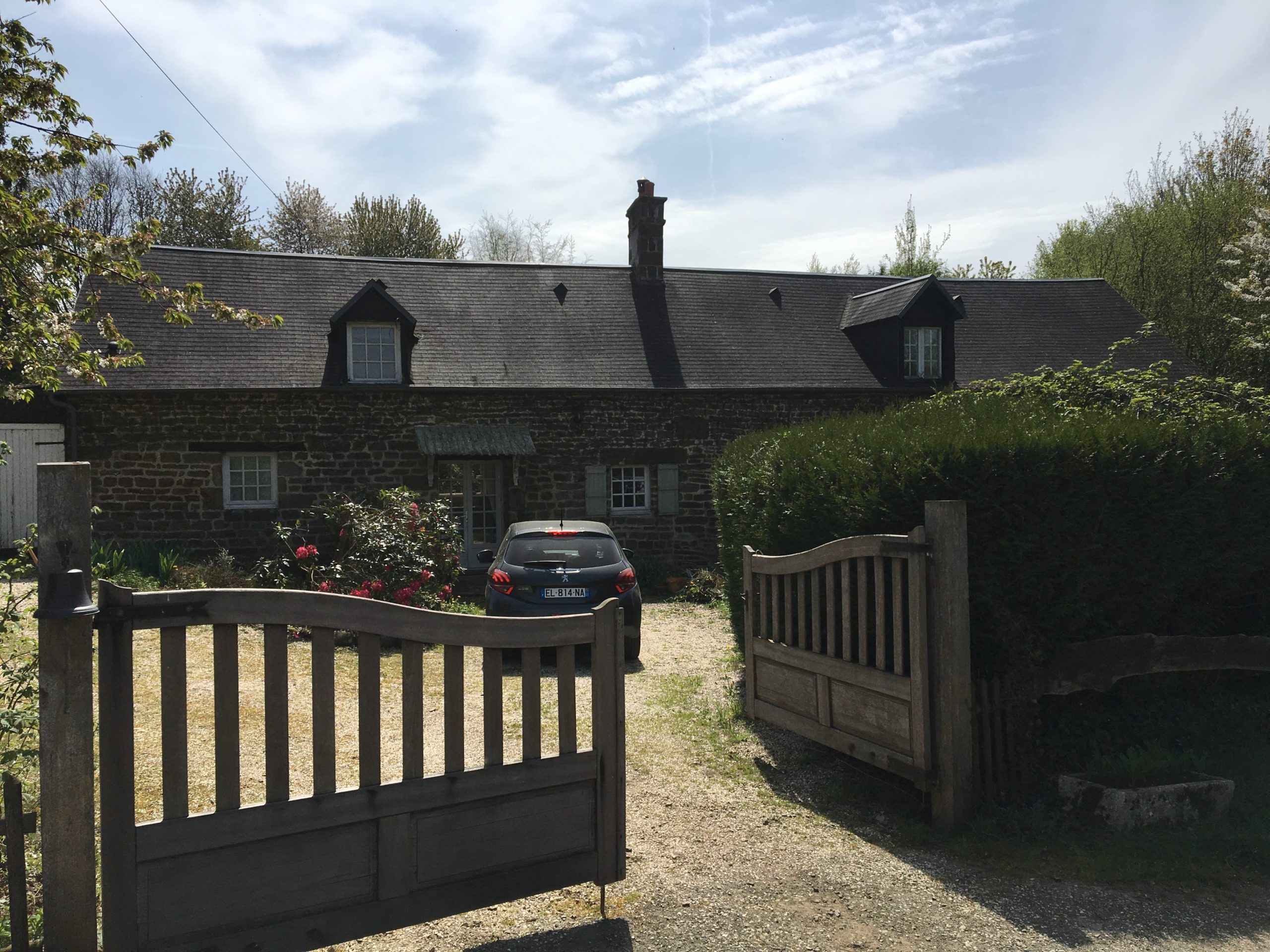It’s mid-January, and I’m winding down a month spent in a new house in Normandy. It’s a new old house, one built in the late 1700s, and so it has been a fine place from which to inhabit both our contemporary manic futurism and our ahistorical past. It has also been a sort of refuge. The world turns, the vox populi cries out, and rural France—despite its ever quickening depopulation (one that may or may not grow into a tsunami of post Brexit neo-leavers)—still doesn’t much care about or for Macron, or Trump, or the technologies of mediation and dislocation.
The field across the lane from my slightly derelict front gate used to be an orchard, now it’s a field given over to the European desiderata of cow food and wheat. Change, yes, but one not so far from the needs of a post-napoleonic world order. The farmers are better paid of course, but within the confines of a common market and common agricultural policy. Frexit may not be a thing here, despite a few graffitied slogans on railway bridges, but I sense, money aside, we’d all out here rather be left alone. Like always, and like farmers everywhere, at least those who remain after The Great Agriculture Consolidation in the US and elsewhere.
It’s quiet, even with those farmers getting ready for winter crops and the never-ending but needed-now disciplines of repair and renewal. That quiet is both profound and at least for the first week or two, slightly unnerving. The brain chatter that is so much the measure of most of our lives shies away from rural, largely unwired quiescence that is the mark of such places.
I’ve enjoyed the labor that this house requires. Not just the clearing of land, and the necessities of chopping wood, but the repairing of drain spouts and roof shingles. This sort of embodied existence too, is something that I’ve had to adjust to, the aches and the pains of the first few days giving way to the pure bliss of sitting by a fire at night, whiskey in hand, feeling as if nothing more could be done that day.
It is a sort of respite, in the way I’ve been thinking about it, and in the ways the word is usually understood. It seems less abstract here than elsewhere. That too, I suspect is both good and bad. It is almost too easy to step away from those things that have such a grip on us in our daily lives. Less a choice and more of a necessity. The house is in a so-called white zone–where telecommunications aren’t ensured. We have fiber in the village, whether it will ever make it the kilometer or less to my house is a matter of chicken bones and tea leaves. My neighbors doubt it will happen in their lifetimes. I have an internet connection that works most of the time, albeit slowly, and a mobile phone that rarely does.
And, of course, no TV. I could, but since I spent a recent day removing a stratigraphic panoply of diseased and defunct tech from the stone walls, from terrestrial radio and TV antennae to jury-rigged satellite dishes (and a few hundred meters of cabling), I don’t imagine it’ll ever be back here. At least as long as the house remains with its current owners. That little bit of the new world hasn’t been part of mine for many, and I see no reason to reintroduce it.
We had some friends—Americans—come over from Paris for a weekend. They’d once labored on land, and spent a happy and rain-free day burning cut branches and brambles, broken reed baskets and defunct cabinetry. We ate beans and pork and duck for dinner, washing it all down with wine and laughter. It felt right, like the place and time it ought to be. I’m grateful for times like that—when despite the diaspora that has been my life—communion happens. That too has something to do with this idea of respite: connections that are unmediated except through the rhythms of the day and season.
Returning at the end of the week to Tbilisi—as much as a town on the digital edge as anywhere new and emerging—will be a shock. But one I’m looking forward to. Not because I’ll once again be in easy contact with the world, but because it’ll be an experiment in what happens when one leaves respite and returns to reality. I won’t enjoy the four-road honking fest outside our window, there, but nor will I have to shovel logs into a wood stove as the sun starts to dip below the horizon.
Tonight, I’m fixing dinner for some other new friends, ones who live over a field or two. They are refuges from the new world: they aren’t cut off, manage a fine business, but embrace too this feeling of living out of time and place, and on their own terms. This month has reinforced my feeling that this is the only way forward, at least for me: intentioned, reflective, and active. We cannot—as I’ve written before—walk away from what we’ve all become or are becoming, but we can find better ways to do it.


Be the first to reply